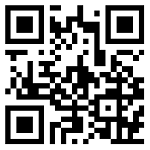提醒:点这里加小编微信(领取免费资料、获取最新资讯、解决考教师一切疑问!)
B.用来加强语气
I do want to have a talk with you.
Do come and see me.
C.用来代替动词词组
Have you finished your work? Yes, I did yesterday.
He plays basketball well. So does his brother.
(4)助动词shall
构成将来时态,单纯表示未来情况
I shall not be back tonight.
(5)助动词will
构成将来时,用于第一、二、三人称。如:
They will move to a new house.
She will not eat any solid food.
注意:
(1)have to 与must的区别
must是情态动词,意思是“必须”、“应该”、“一定要”,后接动词原形。Must的否定形式为mustn’t.构成疑问句时,肯定回答一般用must。否定回答用needn’t或don’t have to 表示“不必”。如:
Must I do it now?
Yes, you must No, you needn’t.
have to 表示“不得不,必须”,可用于多种时态。
I missed the train, so I had to take a taxi.
I’m sorry I won’t go with you, I’ll have to go to the bank.
We don’t have to install this new television set.
(2)used to 表示过去常常,而现在不再有的习惯。其否定形式为: used not to, usedn’t (usen’t) to, didn’t use to.
I used to go to work by bus. Now I go by car.
I used to collect stamps when I was a boy.
Used they to have a lot more free time?
提醒:点这里加小编微信(领取免费资料、获取最新资讯、解决考教师一切疑问!)









